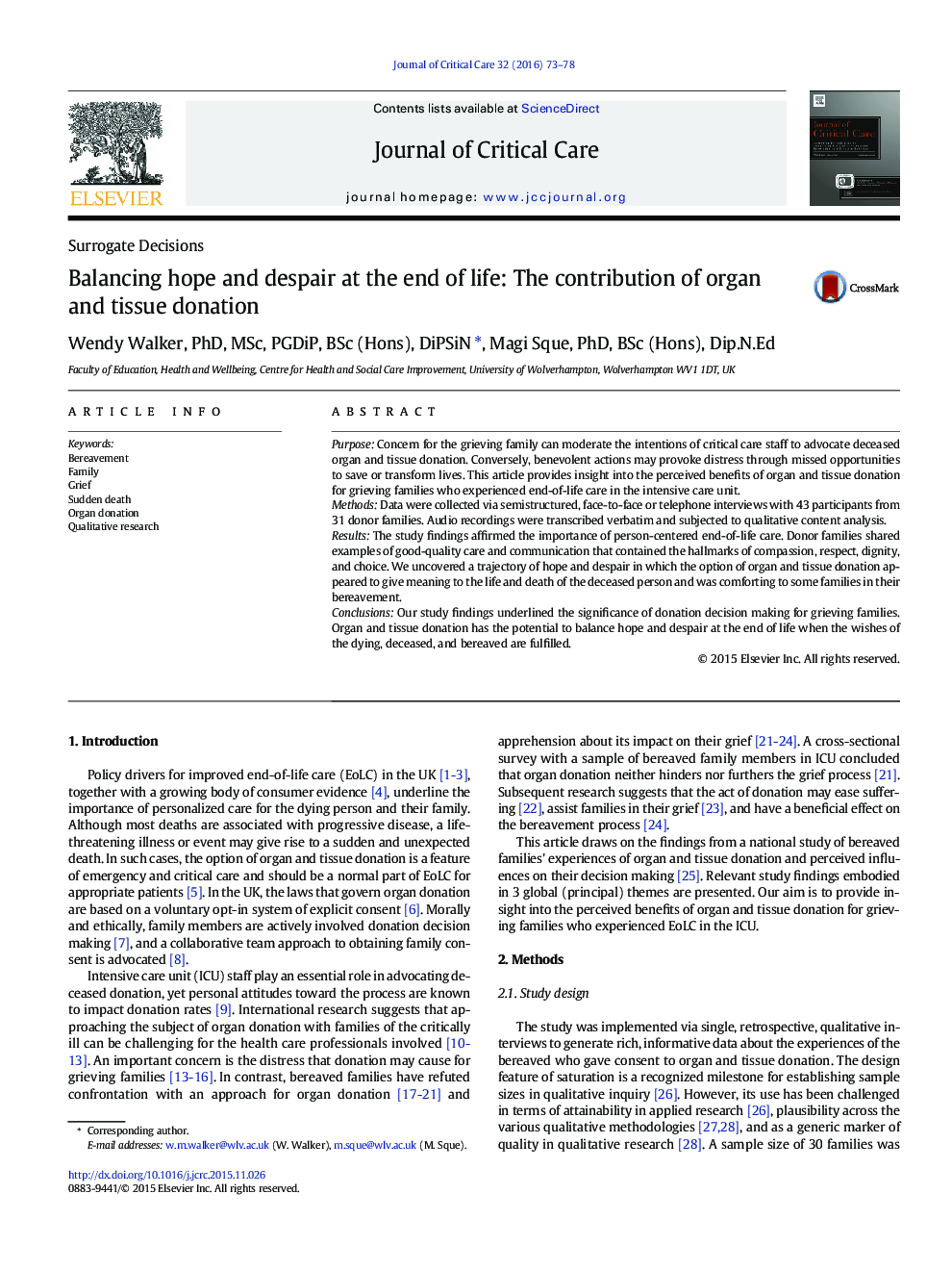| Article ID | Journal | Published Year | Pages | File Type |
|---|---|---|---|---|
| 2764478 | Journal of Critical Care | 2016 | 6 Pages |
PurposeConcern for the grieving family can moderate the intentions of critical care staff to advocate deceased organ and tissue donation. Conversely, benevolent actions may provoke distress through missed opportunities to save or transform lives. This article provides insight into the perceived benefits of organ and tissue donation for grieving families who experienced end-of-life care in the intensive care unit.MethodsData were collected via semistructured, face-to-face or telephone interviews with 43 participants from 31 donor families. Audio recordings were transcribed verbatim and subjected to qualitative content analysis.ResultsThe study findings affirmed the importance of person-centered end-of-life care. Donor families shared examples of good-quality care and communication that contained the hallmarks of compassion, respect, dignity, and choice. We uncovered a trajectory of hope and despair in which the option of organ and tissue donation appeared to give meaning to the life and death of the deceased person and was comforting to some families in their bereavement.ConclusionsOur study findings underlined the significance of donation decision making for grieving families. Organ and tissue donation has the potential to balance hope and despair at the end of life when the wishes of the dying, deceased, and bereaved are fulfilled.
